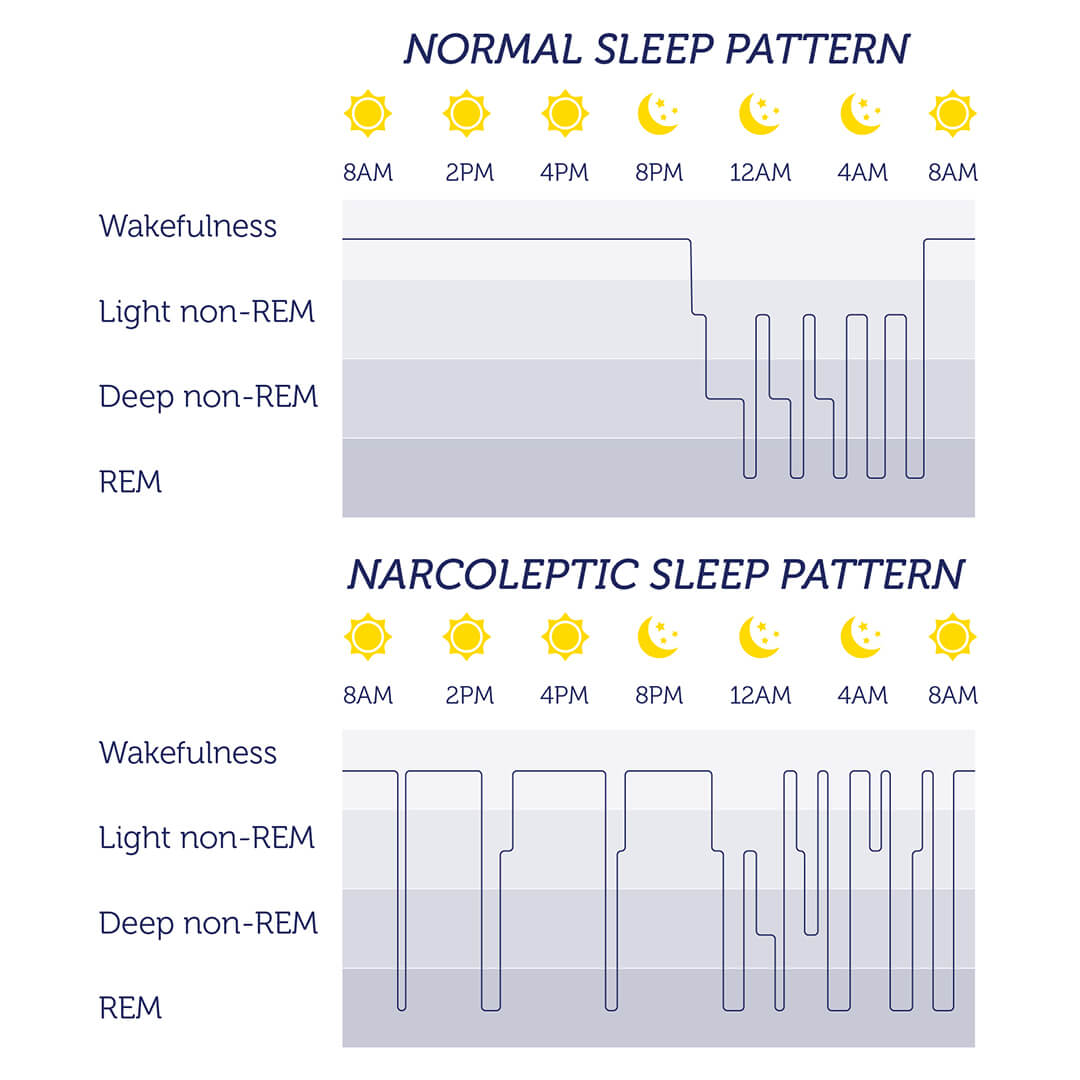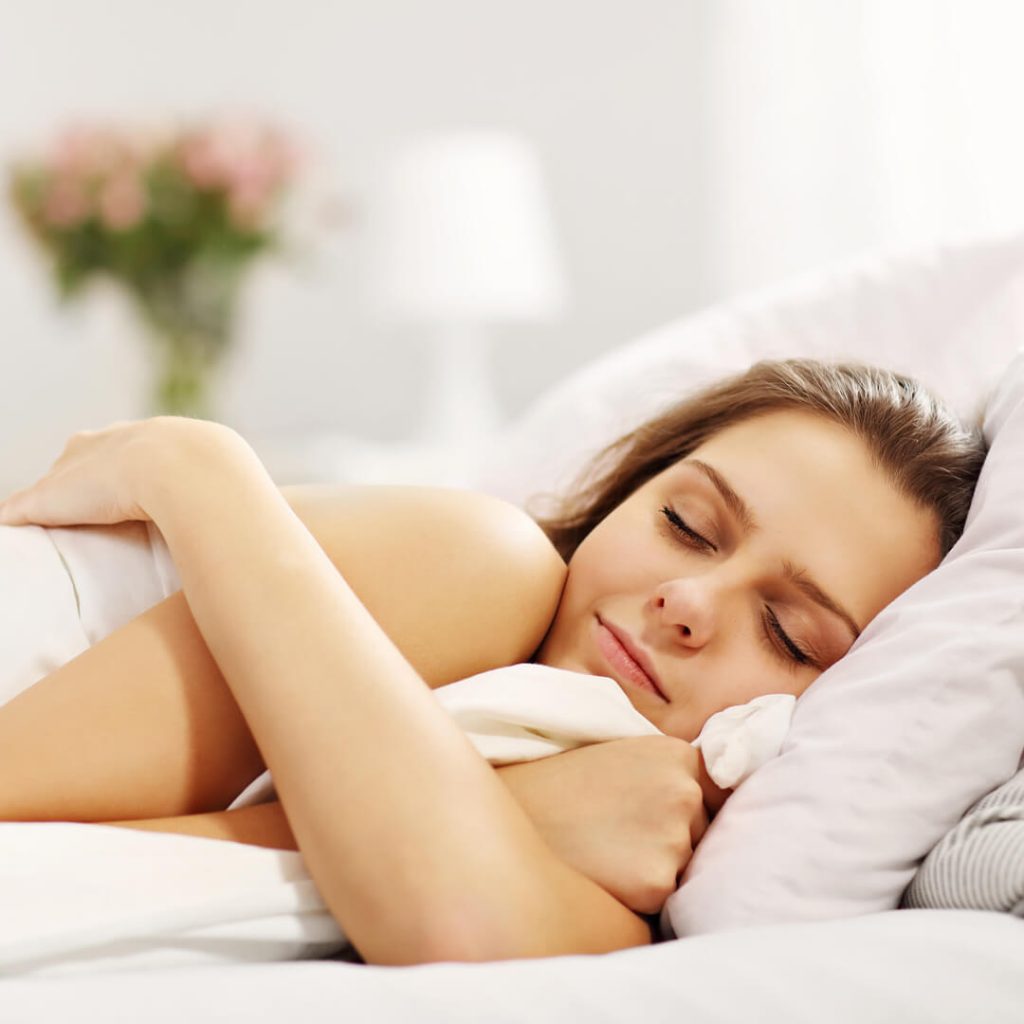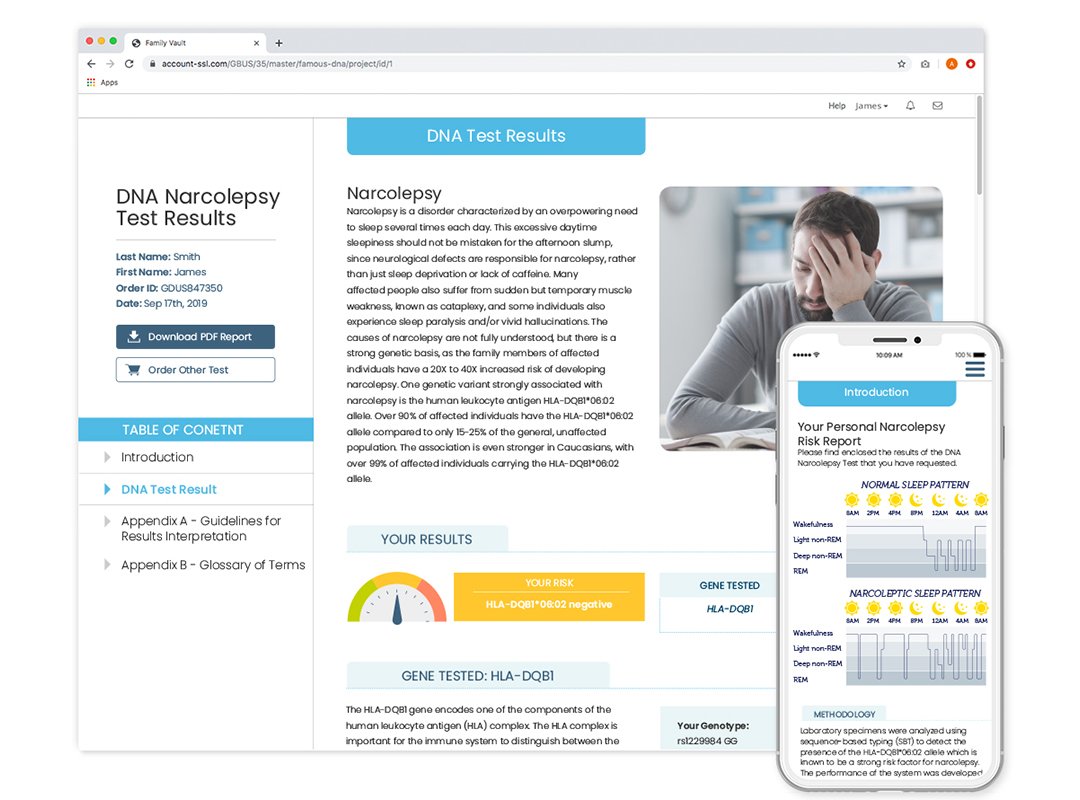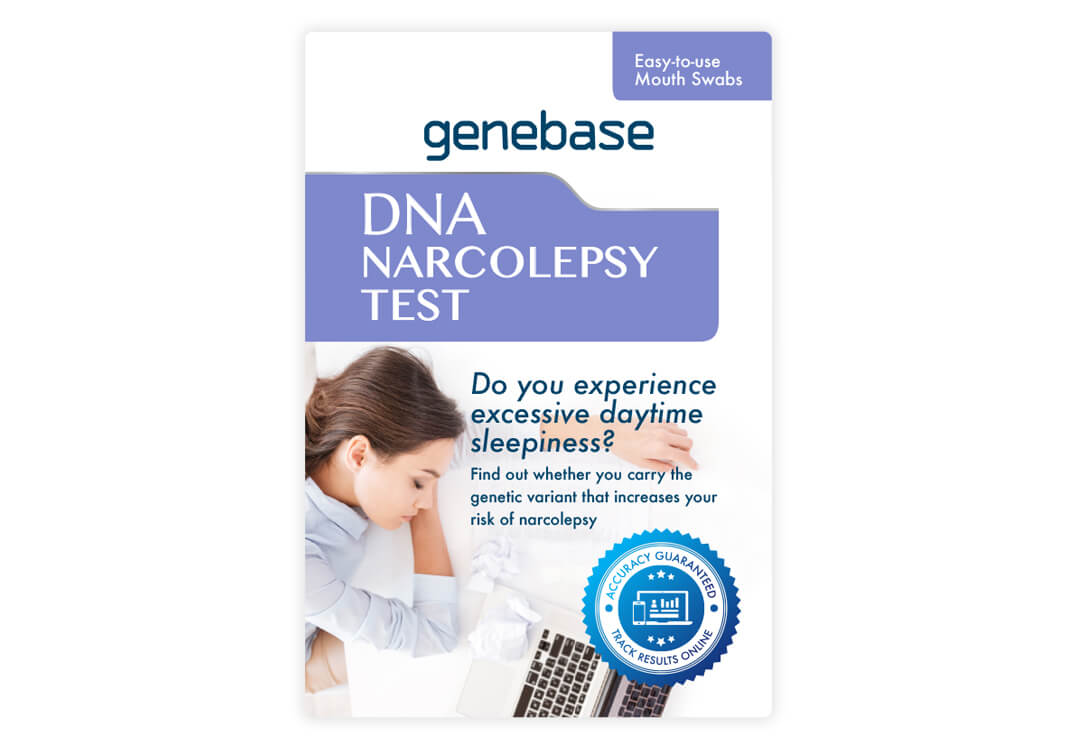Narcolepsy Risk DNA Test
Do you struggle to stay awake throughout the day?
You may have narcolepsy, a sleeping disorder caused by disrupting the balance between sleep-awake cycles. Take this DNA test to find out whether your involuntary daytime naps may be due to narcolepsy.
- Detects the HLA-DQB1*06:02 variant
- People with two copies of HLA-DBQ1*06:02 are at 7X to 25X increased risk
- 100% private and confidential online results
- Painless sample collection
$195.00
If you already took the DNA Narcolepsy Test, login to your Genebase account to access this app.
If you have not taken the DNA Narcolepsy Test, take the DNA test to access this app.
Detailed Description
What is Narcolepsy?
Narcolepsy is a neurological disorder characterized by extreme daytime sleepiness and uncontrollable episodes of falling asleep during the day. This excessive daytime sleepiness should not be mistaken for the afternoon slump, since neurological defects are responsible for narcolepsy, rather than just sleep deprivation or lack of caffeine!
How Common is Narcolepsy?
Between 1 in 2000 and 1 in 5000 people are affected by narcolepsy. However, only about 25% of the cases are correctly diagnosed, and often narcoleptics are mistakenly diagnosed with psychiatric or emotional problems. Family members of an affected individual also have a 20X – 40X increased risk of developing narcolepsy.
This genetic analysis detects the HLA-DQB1*06:02 allele associated with narcolepsy. It is a useful tool, in conjunction with other clinical symptoms, for an accurate narcolepsy diagnosis.

The Genetics
Approximately 90-99% of people with narcolepsy carry a variant of the HLA-DQB1 gene known as the HLA-DQB1*06:02 allele.

- Two copies of HLA-DBQ1*06:02 = 7X – 25X increased risk of narcolepsy (or potentially up to 250X increased risk!)
- One copy of HLA-DBQ1*06:02 + an alternative HLA-DBQ1 allele = 3X increased risk (depending on the risk or protective affect of the alternative allele)
- Absence of HLA-DBQ1*06:02 = Low risk of narcolepsy
However, 15 – 25% of the unaffected people, also carry the HLA-DQB1*06:02 variant, suggesting genetics is not the only factor that contributes to narcolepsy. Multiple other HLA-DQB1 variants also exist, and many of these provide some protection from narcolepsy, complicating the risk analyses.
How many of these narcolepsy symptoms do you have?
- Excessive daytime sleepiness (100% of affected individuals)
- Cataplexy – a sudden loss of voluntary muscle tone (70% of affected individuals)
- Sleep paralysis and/or vivid hallucinations (10 to 20% of affected individuals)
- Microsleep (sleep episodes that only last a few seconds)
- Nighttime wakefulness
- Atonia (loss of muscle strength)
- Involuntary leg muscle contractions
- Rapid entry into REM sleep
How It Works
Order your test kit
Get free shipping both ways with no hidden fees
Test your DNA
A simple, painless mouth swab is all that’s needed
Get Results
View your results from your secure account



